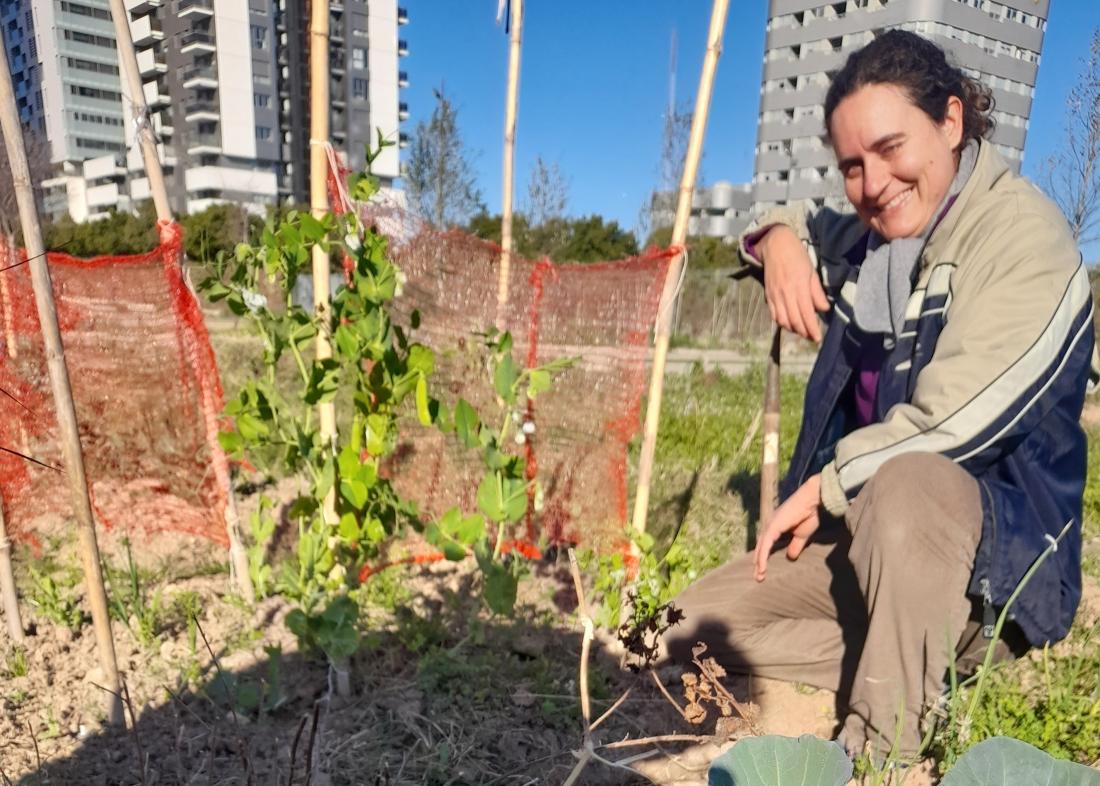Jessica Olcina: "Hopefully I can get the InnovAgroWoMed subgrant and start my project in rural areas"

We talked to Jessica Olcina, one of the 35 students of the 'Semillas' training, that was carried out in the framework of the InnovAgroWoMed project in Spain by Jovesolides, the Spanish partner of InnovAgroWoMed.
Olcina is a young woman committed to the environment and an activist against the climate crisis. In a not too distant future, she hopes to turn her passion into a job and contribute to a necessary and urgent social change.
How did you come to the 'Semillas' training?
I joined the Semillas training thanks to an advertisement provided by a fellow student of the agro-ecological production training (Isabel Tomás).
What is the business idea you want to develop?
I want to generate economic activity to revitalise the depopulated village of Bercuta, in the rural municipality of Chelva, in the region of Los Serranos. The idea is to rebuild the traditional constructive spaces of the village, using them for the small industry of artisan production of products derived from almonds, the main agricultural crop in this area and in other areas also belonging to the municipality of Chelva.
On a social level, the cultivation of this nut is not sufficiently valued in the territory, as the population dedicated to it is scarce and aged. The creation of a cooperative to transform the raw material which is already being cultivated, would give value to a resource which is totally indigenous to the municipality, obtaining greater economic benefit for the members and offering the young population a stable employment option which would motivate them to stay in the municipality.
Furthermore, as a consequence of strengthening the agro-ecological management of the ecosystem for the cultivation of almonds, I intend to progressively recover the traditional extensive livestock activity to combine it with arable land, thus closing the cycle of natural resources, offering another economic alternative to the young population and maintaining the rural landscape with the important work of fire prevention carried out by livestock."
Where did this idea come from?
Initially, due to family roots, I have always been interested in the recovery of both my grandfather's farmland and the family building located in the village. However, as a result of my training in agro-ecology, dynamisation and rural development, getting to know the municipality of Chelva and seeing the great potential it has as a population linked to rural areas, I have broadened my vision and have seen the social need both to fix the population (and prevent depopulation from continuing) and the link between this situation and the need to create stable employment in the area, which favours care for the environment by recovering the environment and traditional livestock activity that favours agriculture, which is the only primary activity that has been maintained more easily.
A very concrete action in relation to this is to get the slaughterhouse that is currently closed to reactivate its activity and to close the agriculture-livestock cycle.
All of this can consequently have an economic benefit for the municipality of Chelva itself, as it offers another alternative for revitalising the local economy and attracting the kind of respectful tourism that is to be consolidated for a sustainable future.
What is the differentiating factor of your venture?
I think it is a different project because of the large number of activities and benefits it generates. It is a project that goes beyond my personal desire to establish myself in the rural environment. It brings together different agents who are the backbone of a new channel of economic benefit and attractiveness of the rural environment.
What do you see as the main difficulty for you? When do you foresee being able to launch it?
Funding. Such a large and complete project requires powerful funding and a specific strategy to obtain it, knowledge in which I am weaker due to my training. Hopefully I will be able to get the funding in 2022 and start the project.
Before working on this entrepreneurial idea, had you ever been an entrepreneur, and why did you choose this option over working as an employee?
No, it is my first entrepreneurship experience and the reason is that after 8 years of working as an employee in the sector I see that my interest and way of contributing to social change is to act in the rural environment.
Tell us about the 'Semillas' training of InnovAgroWoMed project. The students have already completed more than 330 hours of training, what is your assessment?
Very positive. The knowledge acquired in this training thanks to all the teachers who have been training us, although not complete, has opened up a whole range of possibilities and skills that have allowed me to advance more quickly and safely in the materialisation of the project from the beginning. In addition, the possibility of meeting and sharing the journey with so many women in similar situations creates alliances and personal strength that would have been impossible without this training programme.
You did a mentoring and coaching with experts from different fields. What did you specifically expect from this part of the training?
A more individualised accompaniment that is tailored to the needs of my project and that helps me to consolidate the steps towards obtaining the necessary funding.







